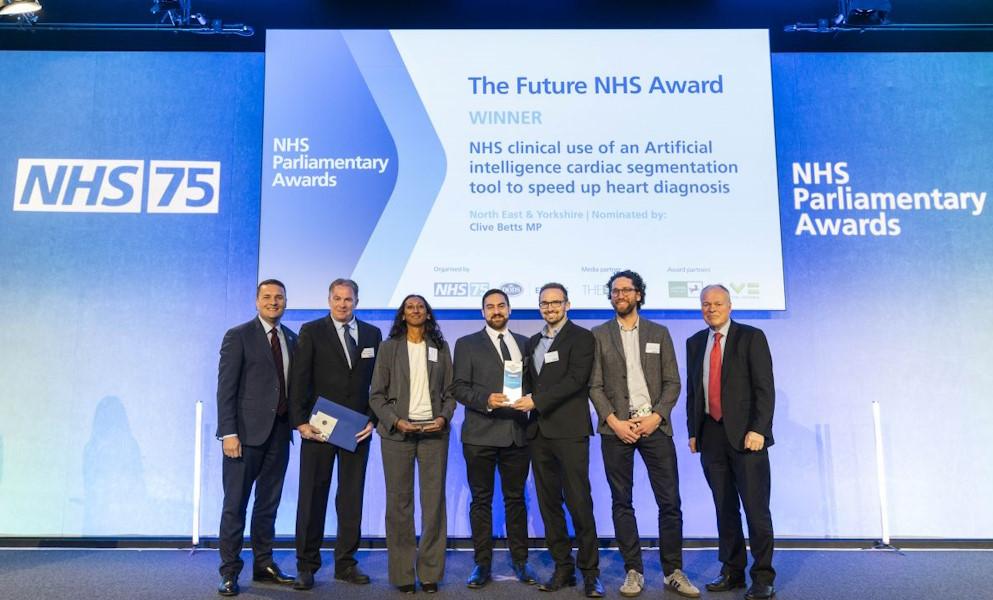AI-based heart disease tool wins Future NHS Award

A digital tool developed by researchers in the NHS that is being used to speed up the diagnosis of heart disease has won this year’s Future NHS Award, which recognises outstanding contributions from the health service workforce.
The artificial intelligence-powered tool was developed by doctors and scientists from Sheffield Teaching Hospitals and the University of Sheffield’s Insigneo Institute and is designed to evaluate the heart function of a patient and identify damage to heart tissue in just a few seconds using MRI scans.
It automatically detects the heart’s function using an algorithm that performs analytical tasks on more than 180 images taken from a patient’s MRI scan, which otherwise would need to be carried out manually.
The tool was described by Sheffield MP Clive Betts, who nominated it for the NHS Parliamentary Award, as a potential ‘game changer’ in future heart disease care, speeding up the diagnosis, treatment, and care of patients.
Betts said the technology “is already leading to more speedy identification of problems and is therefore reducing waiting times for treatment.”
In addition to providing a measure of heart function, the AI can also monitor changes in pressure that take place over the course of the cardiac cycle, providing more detailed information about the flow of blood in and out of the heart.
That, in turn, allows clinicians to identify and spot where the heart’s function may be disrupted at a level of detail previously not available.
The team behind the AI comprises Sheffield Teaching Hospitals' scientific and innovation director Professor Wendy Tindale OBE, consultant radiologist Dr Kavitasagary Karunasaagarar, consultant cardiothoracic radiologist Dr Andrew Swift, clinical scientist Dr Pete Metherall, and Michael Sharkey, University of Sheffield senior research scientist in AI.
“The fully automatic cardiac MRI segmentation analysis has already made significant strides in improving both the efficiency and precision of cardiac MRI analysis,” commented Dr Karunasaagarar.
“This distinguished recognition underlines the commitment our team has shown in revolutionising healthcare through technological innovations.”
Other winners in the NHS Parliamentary Award included an integrated frailty service reducing pressure on hospitals in Warwickshire, a reproductive trauma service supporting pregnant women with mental health challenges in Lancashire and South Cumbria, and a prostate self-referral service set up to help increase prostate cancer referrals in the Southampton area after the pandemic.
“It is thanks to the doctors and nurses, the porters and the cleaners, social care workers, physiotherapists, ambulance crews – and everyone else – that the NHS continues to be our national treasure,” said Health and Social Care Secretary Steve Barclay at the awards ceremony.
“So much has been achieved within healthcare over the past 75 years, and they are helping to build a stronger, healthier service for the long term,” he added.












